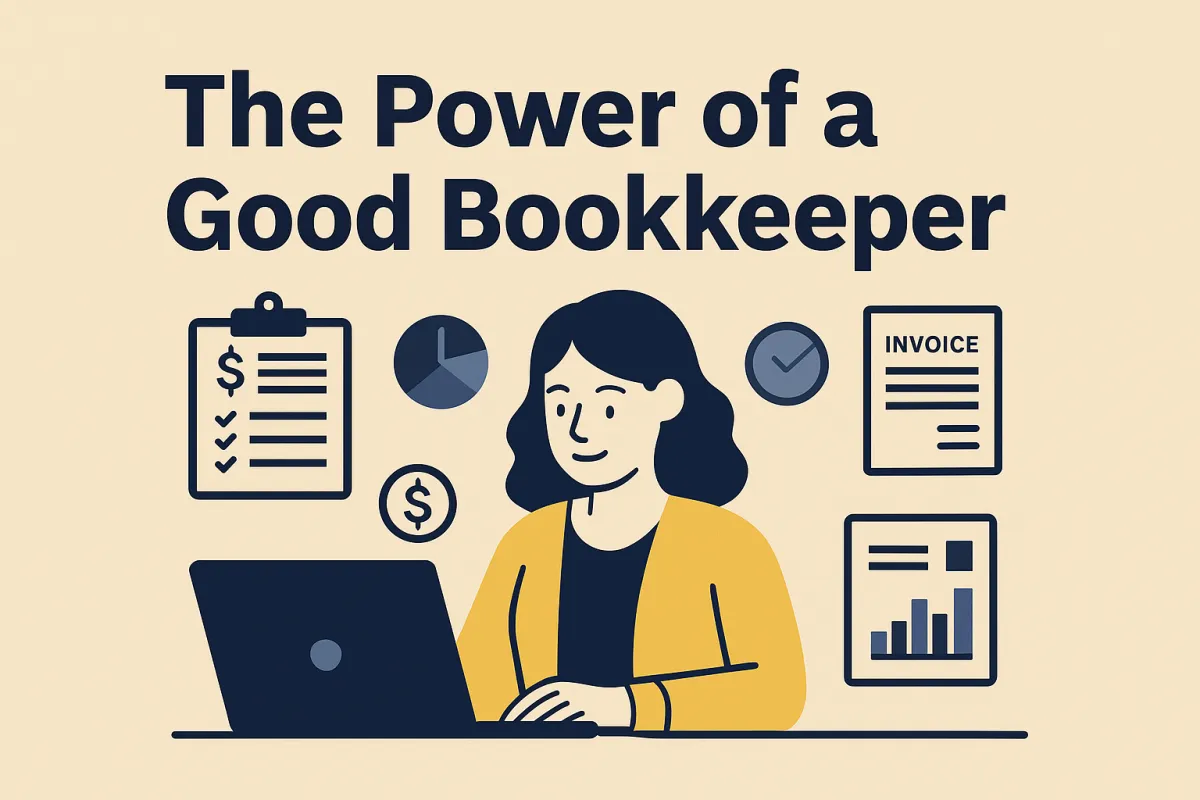
What a Bookkeeper Actually Does—and Why Your Small Business Needs One
What a Bookkeeper Actually Does—and Why Your Small Business Needs One
When you think of a bookkeeper, do you picture someone quietly entering numbers into QuickBooks or Excel? While that’s part of the job, modern bookkeeping is far more strategic and essential to business success than many realize.
Whether you’re a solo entrepreneur or running a growing small business, understanding what a professional bookkeeper actually does can help you take control of your finances, reduce stress, and make smarter business decisions.
What Does a Bookkeeper Actually Do?
1. Keeps Your Books Accurate and Up to Date
At its core, bookkeeping is about maintaining accurate financial records—but it’s not just data entry. A good bookkeeper:
Categorizes income and expenses correctly
Reconciles bank and credit card accounts
Tracks assets, liabilities, and equity
Flags unusual transactions or cash flow issues
This means your Profit & Loss statement, Balance Sheet, and Cash Flow Report aren’t just reports—they’re accurate, timely insights you can trust.
2. Makes Tax Season Stress-Free
Bookkeepers play a critical role in preparing your business for tax time. Instead of scrambling to find receipts or untangle a mess of transactions, a bookkeeper ensures:
Your records are complete and organized
All deductible expenses are properly tracked
You’re prepared to file on time or send complete records to your CPA or tax pro
They also help with quarterly tax estimates, sales tax tracking, and making sure your books align with IRS guidelines.
3. Ensures Compliance and Manages Deadlines
From tracking 1099 contractors to monitoring deductible expenses, a bookkeeper helps your business stay compliant with federal, state, and local regulations. They keep an eye on:
Payroll compliance (if applicable)
Business license renewals and filing requirements
Vendor payments and W-9 collection
Expense documentation in case of an audit
This reduces your risk of penalties and fees—saving you money and stress.
4. Gives You Financial Clarity
The real value of bookkeeping goes beyond compliance—it’s about financial clarity.
Want to know if you can afford to hire a new employee? Expand your services? Cut unnecessary spending? Your bookkeeper delivers reports and insights that help answer these questions and more.
With up-to-date financials, you can:
Understand your profit margins
Monitor trends and cash flow
Set realistic budgets
Make decisions based on data—not guesswork
Why Your Small Business Needs a Bookkeeper
Bookkeeping is more than a necessary task—it’s an investment in your business’s future. A dedicated bookkeeper helps you:
Save time and avoid burnout
Gain peace of mind with accurate numbers
Understand your financial health
Focus on what you do best—running and growing your business
Whether you’re just starting out or scaling up, a professional bookkeeper becomes a trusted partner who helps keep your business financially healthy and prepared for the future.
Ready to Stop Guessing and Start Growing?
👉 Curious how bookkeeping could help your business thrive? Let’s chat—contact us here.